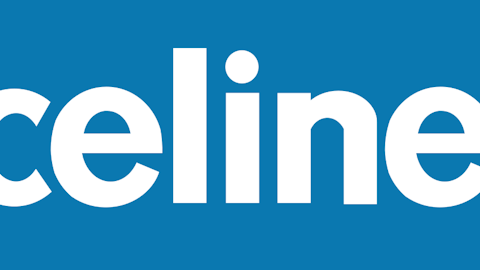Today is the day when Netflix, Inc. (NASDAQ:NFLX) redefines streaming history.
House of Cards begins streaming exclusively through Netflix worldwide. Given the show’s $100 million budget covering 26 episodes through two seasons, there’s a lot riding on its success.
An interesting wrinkle is that Netflix is making all 13 episodes of the first season available at the same time.
“Binge viewing” is what the company calls it.

Cynics call Netflix “rerun TV” because it typically refuses to pay up for current seasons, but that also appears to be by design. Offering current episodes would find Netflix playing a game of “managed dissatisfaction” that CEO Reed Hastings doesn’t want to play.
Not ready for prime-time player
Managed dissatisfaction?
“The traditional entertainment ecosystem is built on it, and it’s a totally artificial concept,” Hastings tells GQ. “The point of managed dissatisfaction is waiting. You’re supposed to wait for your show that comes on Wednesday at 8 p.m., wait for the new season, see all the ads everywhere for the new season, talk to your friends at the office about how excited you are.”
Netflix is willing to bet that viewers prefer to go at their own pace, and we’ll find out soon enough.
This isn’t the first time that the leading video service goes this route. Netflix offered up the entire Lilyhammer season when it became the company’s first original show last year. However, this is House of Cards. This is Kevin Spacey as the lead and David Fincher at the directing helm. This is the first time that any streaming service has exclusive access to the kind of show that would be huge for HBO or Showtime.
If viewers don’t like it, Netflix will be ready with Eli Roth’s Hemlock Grove come April 19 and the long overdue fourth season to Fox’s cult hit Arrested Development a month after that.
However, is Netflix missing out on the merits of managed dissatisfaction when the hits come? Will it ever have its Lady Sybil moment?
Shared experiences
Fans of Downton Abbey were thrown for a loop this past weekend. Something tragic happened to a key character, and since nearly every stateside viewer pretty much experienced it at the same time, they were able to discuss it at work, on Twitter, and through Facebook.
Hastings is no stranger to the power of Facebook Inc (NASDAQ:FB). He sits on the board! He knows the magnetism of the website that draws more than a billion active users every month. He has even used the platform to break some news of his own. Naturally, there’s already a Facebook page for House of Cards, but what will happen when the spoilers get posted? What will happen as some viewers run through the entire season this weekend?
There will never be a “Who shot J.R.?” moment if everyone is consuming a show at their own pace.
Yes, we live in the era of TiVo Inc. (NASDAQ:TIVO). The DVR pioneer has transformed the way we take in entertainment. There’s no point in taking 30 minutes to watch a 22-minute sitcom when recording it through TiVo and blazing through the ads is a better use of time.
However, Netflix isn’t simply birthing the TiVo-zation of streaming with its quick release strategy. The company is denying itself a captive audience that it can string along for 13 weeks — or three months as paying subscribers — just in time to hand the members over to its next original show.
Hastings is right. It’s silly that we hang to a prime-time slot week after week, but there’s also something to be said about the momentum that builds when everyone at the office is bookmarked at the same point of a story arc. Cliffhangers exist because they’re effective.
How many folks taking advantage of free trials to consume the entire season before cancelling will it take to make Netflix reverse on this decision?
There isn’t an answer to that question, because Hastings is pretty sure that he’s right. And, outside of Qwikster, his track record of staying a step ahead of what consumers want is pretty remarkable.
DVDs by mail were slow to catch on. When Netflix began streaming in 2007, it was also ahead of its time. Splitting up its pricing between DVDs and streaming was also a move that was blasted at the time, but Hastings was merely cutting off the dead weight that DVD rentals were becoming.
It was easy to argue that Netflix was turning its back on optical discs too soon, but how’s that been panning out for the fading players these days? DISH Network Corp. (NASDAQ:DISH) is closing another 300 Blockbuster stores, and when Redbox parent Coinstar, Inc. (NASDAQ:CSTR) reports its holiday quarter results next week, analysts are bracing for a 27% decline in profitability.
Yes, it seems as if Netflix should be milking its $100 million investment better. Cracking open the cage to release all of the birds at once doesn’t make sense. However, isn’t this the first step in viewer realization of Hastings’ “managed dissatisfaction” theory?
Once they experience television this way, will they be able to view traditional broadcasts that are dispensed in weekly teaspoons the same way?
Hastings is at the helm of a new revolution, and it’s about to hit consumers like a house of cards.
The article What if Netflix Is Wrong? originally appeared on Fool.com and is written by Rick Aristotle Munarriz.
Longtime Fool contributor Rick Aristotle Munarriz owns shares of Netflix. The Motley Fool recommends Facebook and Netflix. The Motley Fool owns shares of Facebook and Netflix.
Copyright © 1995 – 2013 The Motley Fool, LLC. All rights reserved. The Motley Fool has a disclosure policy.




